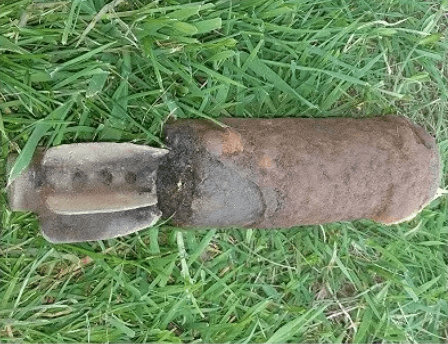Second mortar bomb found in an English park in as many weeks
A 2 inch high explosive mortar bomb was dug by a local metal detectorist in Cumbria yesterday.
A member of the public exhumed the WW2 unexploded ordnance (UXO) in Rickerby Park, Carlisle during an afternoon walk.
Yesterday’s incident follows a similar find just 13 days ago in East Anglia, where a suspicious object was spotted in a park. St Edmundsbury Police and a bomb disposal team based in Colchester attended the scene and identified the item as a Second World War-vintage 2-inch mortar smoke bomb, which contained no explosives and was recovered for safe disposal.

Is there a greater UXO risk to metal detector users?
Yes, people who use metal detectors are especially at risk from buried UXO. In order to investigate a metallic anomaly, the detectorist will have to dig up the item, increasing the likelihood that they will impact the object.
Untrained persons are more likely to mishandle UXO, elevating the risk of an inadvertent detonation. When unearthing metal objects, extreme caution should always be exercised.
Why was a mortar bomb buried beneath a public park?
The number of soldiers in England swelled greatly with the influx of Allied armies during WWII. In response, the British War Office requisitioned public land throughout the UK. The armed forces used this additional land for training and accommodation.
Unexploded ammunition finds, such as this mortar, highlight the hazardous legacy of this wartime policy.

UXO Risk Mitigation
Conducting ground works on parkland? Brimstone would always recommend carrying out a UXO Risk Assessment first to mitigate the risk of any surprise UXO encounters.
With a 24-hour turnaround, our Preliminary UXO Risk Assessments are the most cost-effective and fastest way of discounting UXO risks for your site.
Keep up to date with Brimstone UXO by following us on Facebook, Instagram, Twitter, LinkedIn and YouTube.